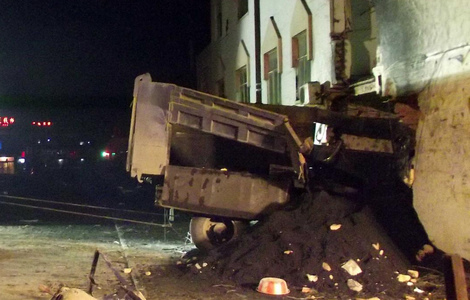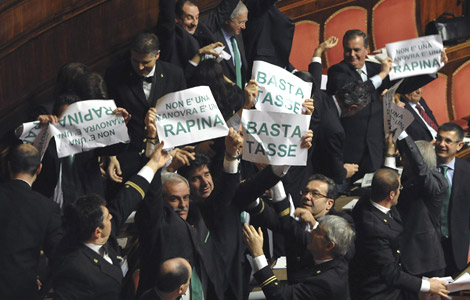China on guard against abnormal cross-border fund flow
Updated: 2011-12-15 06:16
(Xinhua)
|
|||||||||||
BEIJING - China's foreign exchange regulator on Wednesday called for efforts to guard against the flow of abnormal cross-border funds amid concerns that overseas capital is fleeing the country during the world economic downturn.
Regulators of all levels should prevent and defuse risks of abnormal cross-border fund flows and protect the country's economic and financial safety, the State Administration of Foreign Exchange (SAFE) said in a statement.
China has fought hard against the influx of "hot money," or speculative overseas capital, fearing excessive liquidity that increases inflationary pressure, but the trend seems to have reversed in the past few months.
In October, China saw the first month-on-month decrease in nearly four years in yuan funds stemming from foreign exchanges, a measure often used to gauge the scale of "hot money" by subtracting trade surpluses and foreign direct investment from the sum.
The nation's total yuan funds outstanding for foreign exchanges decreased by 24.9 billion yuan ($3.8 billion) from September to 25.5 trillion yuan at the end of October, central bank data shows.
The figures fueled worries that overseas capital is flowing out of China because of slowing economic growth, as well as sluggish real estate and capital markets.
China's economy grew by 9.1 percent in the third quarter this year, the slowest growth pace recorded since the third quarter of 2009.
The central bank cut the reserve requirement ratio for lenders by 50 basis points for the first time in three years on Dec 5 in order to ease banks' credit crunch. A sharp decline in overseas capital inflow is likely to cause a decrease in domestic liquidity.
In Wednesday's statement, the SAFE also called for measures to make foreign trade and investment more convenient.
It said the country's foreign exchange reserves should be better managed and the international balance of payments should be further improved.
Related Stories
Yuan exchange rate to be 'basically stable' 2011-12-14 13:21
Hu: RMB exchange rate not cause behind US problems 2011-11-13 16:23
Currency not issue for WTO: official 2011-11-18 15:03
Issue of currency is not a WTO concern 2011-11-18 06:59
China vows currency reform at own pace 2011-11-02 08:02
Hot Topics
HIV/AIDS, Egypt protest, Thanksgiving, climate change, global economic recovery, home prices, high-speed railways, school bus safety, Libya situation, Weekly photos
Editor's Picks

|

|

|

|

|

|







